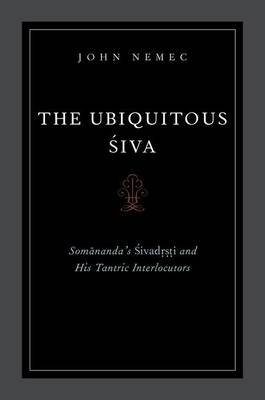
- Afhalen na 1 uur in een winkel met voorraad
- Gratis thuislevering in België vanaf € 30
- Ruim aanbod met 7 miljoen producten
- Afhalen na 1 uur in een winkel met voorraad
- Gratis thuislevering in België vanaf € 30
- Ruim aanbod met 7 miljoen producten
Zoeken
The Ubiquitous Siva
Somananda's Sivadrsti and His Tantric Interlocutors
John (Assistant Professor of Indian Religions and South Asian St
€ 127,95
+ 255 punten
Omschrijving
This book examines the beginnings of the non-dual tantric philosophy of the famed Pratyabhijña or ''Recognition'' School of tenth-century Kashmir. It includes a critical edition and annotated translation of chapters 1-3 of Somananda's Sivadrsti, the first Pratyabhijña text ever composed, along with the corresponding passages of Utpaladeva's commentary, the Sivadrstivatti.
Specificaties
Betrokkenen
- Auteur(s):
- Uitgeverij:
Inhoud
- Aantal bladzijden:
- 456
- Reeks:
Eigenschappen
- Productcode (EAN):
- 9780199795451
- Verschijningsdatum:
- 10/11/2011
- Uitvoering:
- Hardcover
- Afmetingen:
- 238 mm x 163 mm
- Gewicht:
- 784 g

Alleen bij Standaard Boekhandel
+ 255 punten op je klantenkaart van Standaard Boekhandel
Beoordelingen
We publiceren alleen reviews die voldoen aan de voorwaarden voor reviews. Bekijk onze voorwaarden voor reviews.








